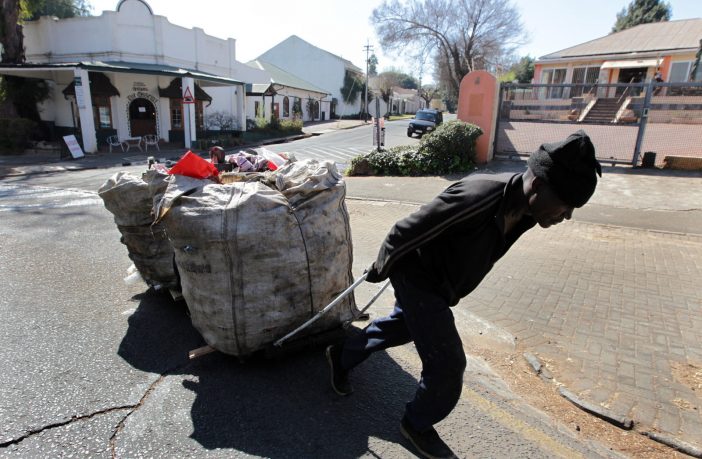- A new report by the Global Alliance for Incinerator Alternatives (GAIA), shows how government investment into zero waste systems presents an opportunity for economic recovery and social justice.
The report highlights that through forging partnerships with informal recyclers using dedicated economic recovery funds, governments can make a transition to zero waste city systems. Based on research from countries in the global south such as South Africa, Brazil, India, and China, this report finds that inclusive zero-waste cities have led to greater economic justice for people doing essential work, cost-saving for cities and better environmental outcomes.
It also uncovers the extent to which informal recyclers have become the cornerstone of recycling in Global South cities. Statistics show that in South Africa, waste pickers recover between 80 to 90% of the post-consumption packaging and paper. In Brazil, the National Waste Pickers Movement (MNCR) is responsible for collecting 90% of all material recycled in the country. Moreover, in India it is estimated that waste pickers recycle 54% of all recycled glass, 34-45% of all recycled plastic, and 28-50% of all recycled cardboard and mixed paper.
Cecilia Allen, GAIA’s global projects advisor and author of the report, said:
“Governments have an opportunity to build from waste pickers’ experience, by supporting and investing in their inclusion into municipal waste management systems. This will not only improve the lives of the poorest but will also help governments find a way out of waste disposal systems, which present a never-ending headache of high costs and environmental impacts.”
The report demonstrates that by local governments recognising the essential role informal recyclers already play and partnering with them, they can collaboratively work to create local jobs and provide better recycling and composting services. Based on data from several cities that contract with waste pickers, the average number of jobs created by inclusive waste management systems is 321 jobs per 10,000 tonnes per year of recyclables.
Niven Reddy, GAIA’s African regional coordinator, added:
“In South Africa, municipalities already benefit from the fact that waste pickers in the country are organised and provide an essential service of diverting waste materials from landfill. Because municipalities do not formally recognize their work, the benefits to the climate and municipal landfill space all too often goes unseen. Municipalities should be looking at rewarding these efforts by improving working conditions of waste pickers– providing them with a space to sort, collect and sell their recyclable materials. Infrastructure development should be prioritised towards material recovery facilities that integrate waste pickers rather than incineration facilities that will displace them.”
Simon Mbata, SAWPA (South African Waste Pickers Association) national coordinator:
“Research has shown that waste pickers play an important role in waste management, in the recycling economy, alleviating poverty and mitigating emissions. We are yet to see meaningful support towards waste pickers by both government and the private sector. Policies at local level are not favourable to waste pickers and their work.”
Link to the full report HERE
Author: Bryan Groenendaal











